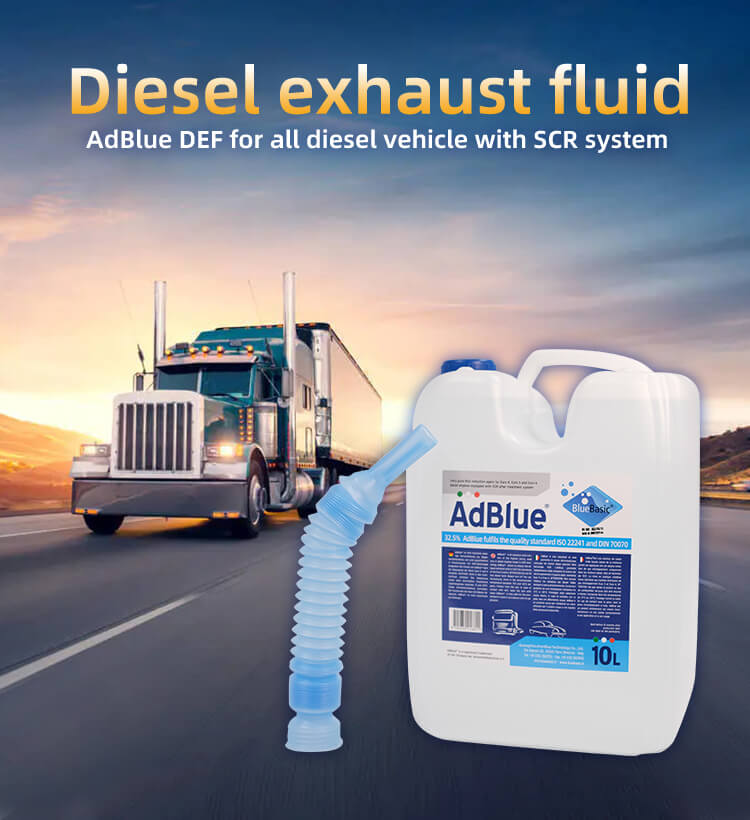 +86 20 26211661
+86 20 26211661
 +86 20 26211661
+86 20 26211661
DEF with Additive can promote the decomposition of urea into ammonia, and avoid or reduce urea crystal formation and agglomeration. The additive also disperses, dissolve and eliminate the existing crystalized substances in the tank
Read MoreConcentrated car wash wax water can effectively remove stubborn stains on the car body, even without wiping.
Read MoreIt has two basic functions: firstly, and most obviously, to aid in the cleaning of your screen by lifting dirt away from it as the wipers sweep. But the second of the low temperature screen wash is to keep your washer fluid from freezing in the depths of winter.
Read MoreConcentrated Car wash wax kit is a high quality, waterless washing and waxing product in one to clean and protect your vehicle, with or without water, anytime, anywhere, no restrictions on the internal and external surfaces can be left anti-static non-stick anti-UV coating
Read MoreAntifreeze (Engine coolant), is a liquid substance used in the cooling systems of vehicles to prevent the engine from freezing in cold temperatures and overheating in hot temperatures.
Read MoreEverBlue antifreeze coolant is a specially formulated ready to use engine coolant, for both petrol and diesel engines, it is mixture of mono-ethylene glycol and selected chemical agents to provide outstanding all round protection.
Read MoreLeather protectant spray work by creating a protective barrier that helps to prevent stains, spills, and damage from everyday wear and tear.
Read More

The liquid substance AdBlue helps to significantly reduce pollutants emitted during the combustion of diesel. If AdBlue is added to diesel while driving, trucks can drive where they are actually not allowed to drive due to the high exhaust emission values. AdBlue thus makes it possible to drive in environmental zones. This could now be the end. It would have immense consequences for the population and the environment.
The pollutant-reducing liquid AdBlue is becoming scarce because large quantities of ammonia are needed for its production. But the production of ammonia in turn requires large quantities of gas, gas that has increased enormously in price due to the Russian invasion of Ukraine. As a result, factories in Poland, Croatia, Portugal, France and Italy have already reduced their production, as operating at 100 per cent is no longer profitable due to the high price of gas. The price of AdBlue has also quadrupled so far. In addition, the price of diesel for a truck has also risen.
If AdBlue continues to become scarcer, more trucks could come to a standstill in the future and no longer be able to perform their duties. Without AdBlue, they would emit unfiltered, dirty combustion air and thus no longer comply with the strict environmental standards. One consequence would be that trucks would no longer be allowed to enter low emission zones and would simply stop. There are therefore warnings of supply bottlenecks, especially for vital, fresh goods and goods for daily use.
The Swiss Central President of the Swiss Commercial Vehicles Association (ASTAG), Burkart, has now called for driving without AdBlue to be permitted in extreme emergencies. This, however, would considerably increase the emission of nitrogen oxides and particulate matter. Up to an unbelievable 90 percent more nitrogen oxides would be released into the air. Nevertheless, he argues that trucks should be allowed to drive without AdBlue in an emergency, as otherwise the supply of the economy and the population could not be guaranteed. Jon Pult of the Swiss Social Democrats is against this "It would massively worsen the burden of harmful pollutants such as nitrogen oxides and particulate matter and would be very detrimental to the health of the population and the environment in general". He believes that AdBlue technology can only be switched off if this happens as soon as possible, but that it must be prevented at all costs.
Then, however, many trucks would not be allowed to drive in low emission zones at all, as they would no longer meet the requirements. Even then, normal goods and freight traffic all the way to the customer would be in danger. But this would not have devastating consequences for air quality and the environment.
 online service
online service +86 20 26211661
+86 20 26211661 sammi@everblue.com.cn
sammi@everblue.com.cn Sammi Sun
Sammi Sun +86 137 1902 0590
+86 137 1902 0590